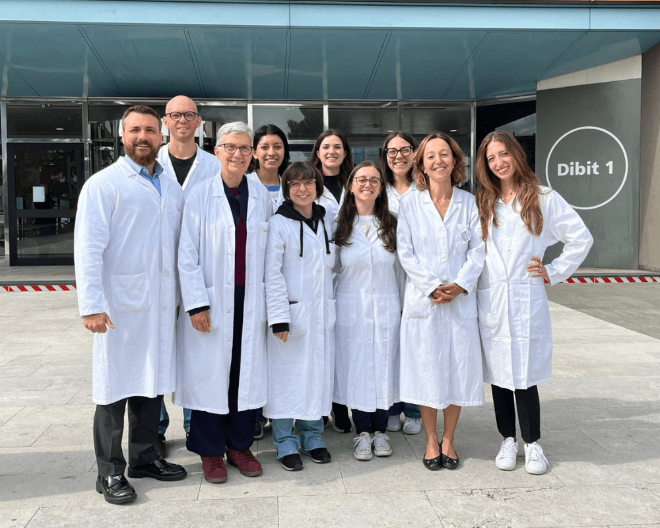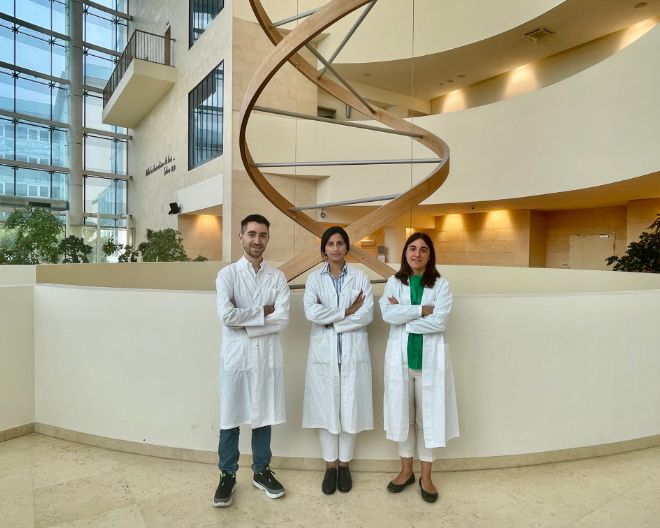The EMA approves lecanemab
A drug for the early treatment of Alzheimer's disease

IRCCS San Raffaele Hospital has been the first center in Italy to administer it. Following a reassessment of its initial negative opinion, the Committee for Medicinal Products for Human Use (CHMP) of the European Medicines Agency (EMA) has expressed a positive opinion on the marketing of lecanemab, a monoclonal antibody directed against the amyloid protein, for the treatment of early-stage Alzheimer's disease, characterized by mild cognitive impairment and mild dementia.
In its opinion, the CHMP, re-evaluating its opinion on the results of the Clarity-AD study, considered that the benefits of lecanemab in slowing down the cognitive decline inherent in the disease outweigh the risks associated with the side effects of the drug only in patients with a single copy or no copy of the ApoE4 gene. In this group, the risk of experiencing harmful side effects, such as cerebral edema and hemorrhage related to the presence of amyloid plaques typical of the disease, was lower than the risk for the total study population, which included people with two copies of the ApoE4 gene. As a result, the indication for lecanemab was narrowed, excluding people with two copies of the ApoE4 gene, for whom the risk of experiencing brain swelling and hemorrhage is greater.
The CHMP also imposed additional measures to reduce the risks, including a controlled access program and regular MRI exams to monitor the drug safety. These measures improve the benefit-risk balance of lecanemab, protecting most-at-risk patients from possible harmful side effects such as those indicated above.

CARD - Center for Alzheimer's disease and related pathologies of the IRCCS San Raffaele Hospital, directed by Professor Massimo Filippi, welcomes the positive decision of the CHMP. CARD appreciates and supports the considered approach taken by the EMA to identify patients most likely to benefit from treatment and exclude those most at risk of harmful side effects, promoting timely, safe and fair access to these medicines.
The approval of lecanemab by the EMA marks a historic moment in the treatment of Alzheimer's disease. This drug offers new hope for all people affected by Alzheimer's in the early stages, allowing an intervention that could modify the evolution of the disease. It is a step forward which, as neurologists and researchers, we welcome with profound satisfaction
- states Professor Massimo Filippi, head of the Neurology Unit, of the Neurophysiology service and of the Neurorehabilitation Unit of the IRCCS San Raffaele Hospital and full professor of Neurology at the Vita-Salute San Raffaele University.

Prof. Filippi also underlined the commitment of the IRCCS San Raffaele Hospital, the first Italian center to administer lecanemab since last summer, in compliance with all current regulations:
Aware of the value and challenges posed by this new therapy, our CARD Center has implemented a highly structured system to guarantee patients maximum safety and effectiveness. We have implemented a program of early biological diagnosis, assessment of risk factors and monitoring of efficacy and side effects, with regular MRI exams and a dedicated infusion service, which allows us to better manage patients' needs and minimize risks. The San Raffaele Hospital is ready to face the challenge represented by these new drugs. Our experience administering lecanemab shows that we are fully operational and prepared to ensure patients receive the best care available. This is our promise and our commitment for the future
- concludes Professor Filippi.
Alzheimer's disease is a progressive neurological condition that affects brain functions, in particular cognitive ones including memory, which currently affects approximately 1 million people in Italy, which is why CARD was born at San Raffaele last year. The aim of the Center is to offer a multidisciplinary clinical-instrumental check-up process for the assessment of the risk of onset of cognitive impairment and the implementation of prevention paths.
Professor Federica Agosta, group leader of the Neuroimaging Unit of neurodegenerative diseases of the IRCCS San Raffaele Hospital and associate of Neurology at the Vita-Salute San Raffaele University, states:
On the front of early diagnosis and prevention, it is also active at the San Raffaele the Brain Health check-up program, a new San Raffaele Hospital project aimed at the population over the age of 40 to promptly identify any signs of cognitive decline through advanced clinical-instrumental tests
For patients who wish to have information on monoclonal antibodies: cdcd@hsr.it
For patients who wish to receive information on the Brain Health path: checkup.segreteria@hsr.it
You might be interested in

Juvenile Parkinson's disease: at San Raffaele created a new model to study its development

Researchers Franco, Ferrari and Omer awarded three ERC Starting Grants

Gold nanoparticles: from San Raffaele research the new frontier to identify and eliminate until now invisible bladder tumors

